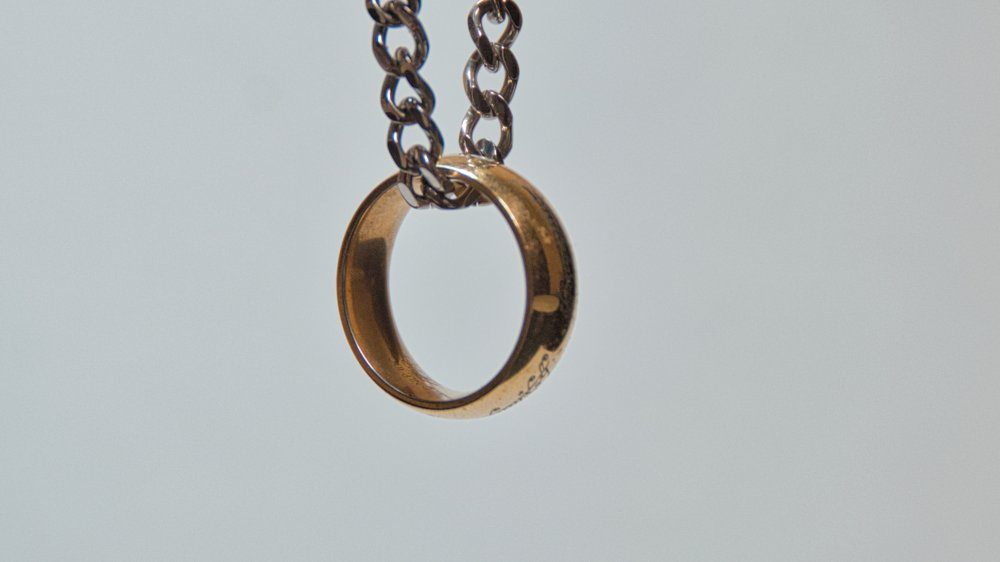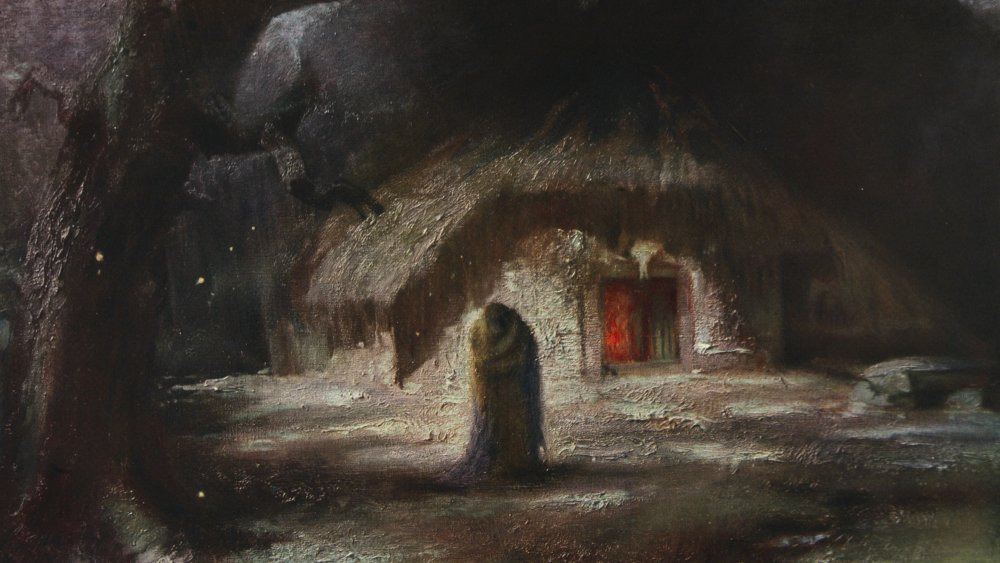What The Tolkien Movie Got Wrong About Wagner
When the movie Tolkien came out, it drew a lot of parallels to J.R.R. Tolkien's real life and what inspired and influenced his writings. In truth, Tolkien's imagination was influenced by many things; after all, he was a man who studied languages and had a great interest in different cultures.
But the movie may have exaggerated some things, including how much Tolkien got from another story about a ring of power, Richard Wagner's 1876 opera Der Ring des Nibelungen, or what is usually called the Ring Cycle. In the movie, Tolkien goes to a performance of the opera with his wife, Edith, and gets the idea for a powerful ring, which he includes in his writings. Tolkien's The Hobbit and the Lord of the Rings trilogy heavily feature rings — in particular, one ring to rule them all. While Wager and Tolkien share similarities, it could be because the same mythologies inspired them. According to The New Yorker, Tolkien always downplayed any connection to Wagner, even to the point that any comparison annoyed him. "Both rings were round, and there the resemblance ceased," Tolkien supposedly said.
It's not as though Tolkien was unfamiliar with Wagner's opera. On the contrary, he even did a study on the Ring cycle shortly before writing the novels. Both works drew heavily on Norse mythology, particularly the Völsunga saga. And although the concept of the ring of power first appeared in the Wagner's Ring cycle, Tolkien insisted that's where similarities stop.
The writer doth protest too much
Tolkien actively disliked the Ring cycle, wrote Jamie McGregor, a professor at Rhodes University, in the journal Mythlore. Even as a schoolboy, Tolkien scoffed at Wagner and believed the composer did not understand mythology and failed to do it justice. He'd lamented the taste of his close friend C.S. Lewis, who liked Wagner. Vehemently saying you don't like something usually means you secretly like some parts of it, or so thought many academics. Tolkien may not have gone to a performance of Wagner and suddenly came up with the idea to invent the Ring of Power and give it to Sauron to wield. Like so many writers and creators these days, Tolkien was so bombarded by different influences that he may have inadvertently been influenced anyway.
McGregor said in Mythlore that it is possible Tolkien took some references from Wagner unintentionally, so his frequent denials and annoyance that the two were alike are merely ways to justify this decision on his part. One of the things Tolkien disliked most about Wagner was how he "got it wrong." McGregor argued that Tolkien, in writing Lord of the Rings, wanted to do justice to the Norse mythologies he so loved and, in trying to make something worthy of it, managed to correct Wagner's interpretation.
We'll never truly know, since Tolkien himself shot those ideas down. The Independent even suggested that Tolkien must've heard a story about a magical ring from a visit to Gloucestershire.
He was inspired by a lot of things
Even though both Wagner and Tolkien talk about all-powerful rings, The New Yorker pointed out Tolkien's ring was very different. The rings are forged differently and represent other things. In Wagner, the ring reflects human relationships; in Tolkien, it heightens individual tendencies.
Wagner may not have directly influenced Tolkien, but we do know that Tolkien drew on other epics to write his own. As an expert in Old English, Tolkien was intimately familiar with the epic poem Beowulf. It inspired him in the creation of creatures that populate Middle Earth, including some names. He loved creating new languages and took inspiration from Christianity, mythology, and archaeology. He had a fondness for Norse and Finnish mythology and included references to Celtic stories, Greek legends, and Slavic tradition. Tolkien's work was also heavily influenced by his experiences during World War I.
In other words, Tolkien's work mashed all of his interests together. He took inspiration from the things he studied and taught; practiced creating languages, which was a beloved hobby of his; and, yes, even tried to rescue myths from the opera. The movie exaggerated how much Wagner influenced him, and well, it's not as if Tolkien needed more influences in his work anyway. There's already too much inspiration.


